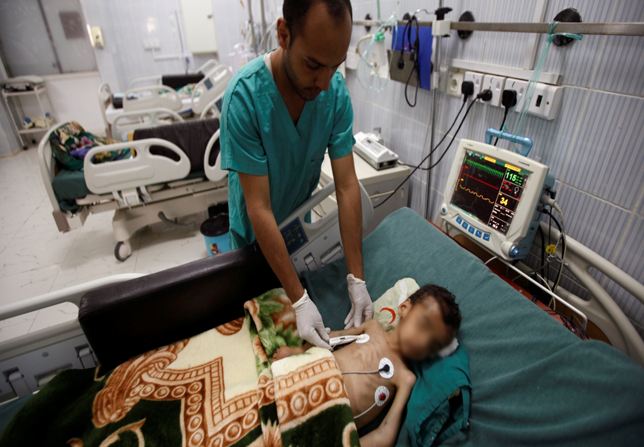Oxfam Warns: Yemen Facing Hidden Cholera Crisis as COVID Cases Set to Peak
YemenExtra
Oxfam warned on Tuesday that thousands of people in Yemen could be dying from undetected cases of cholera because COVID-19 has overwhelmed the country’s health facilities and people are too frightened to seek treatment for fear of the virus.
The number of coronavirus cases in Yemen is likely to peak in the coming weeks while the heaviest rains are expected in August which could deepen a hidden cholera crisis, the charitibale organization said.
I t added that the numbers of recorded suspected cholera cases since March have shown an abnormal decrease. In the first three months of 2020, there were more than 100,000 suspected cases of cholera in Yemen but this dropped by 50 per cent in the second three months. Last year, the numbers increased by 70 per cent in the second quarter because it coincides with the start of rainy season.
It means it’s likely there are already tens of thousands of people suffering with undetected and untreated cases of cholera. According to the WHO, half of those diagnosed with cholera will die from the disease if its left untreated but with timely and adequate treatment, that will remain below 1%, according to Oxfam.
The first case of coronavirus was reported in the country in April and although officially only 1644 cases had been recorded by 22 July, the actual figure is likely to be far higher because of underreporting and a lack of testing facilities. The UK’s Department for International Development has estimated it could already be as high as one million.
Muhsin Siddiquey, Oxfam’s Yemen Country Director said: “Yemen is on course for a truly horrific catastrophe as both cholera and COVID could peak in the coming weeks. Yemenis desperately need an end to the fighting which has destroyed health facilities and left communities more vulnerable to the virus.
“Rather than show that Yemen has cholera and COVID under control, the low official numbers demonstrate the exact opposite. A lack of working health facilities and people too scared to get treatment mean that the numbers suffering from these diseases are being vastly under recorded.”
Source: Agencies

